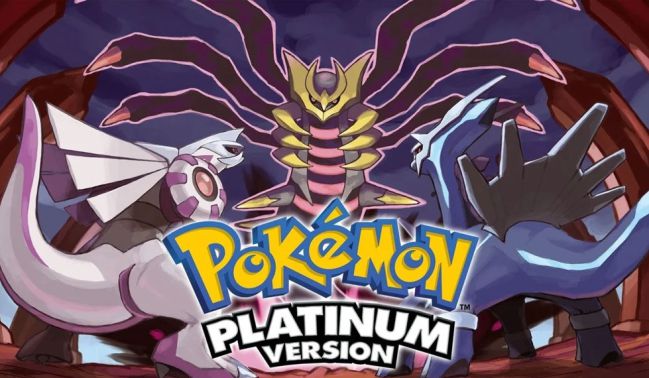Giniä: A Universal Symbol of Community, Resilience, and Shared Human Values
In a world often defined by fast-paced technology and growing individualism, concepts that foster unity, collaboration, and cultural resilience feel more important than ever. One such idea is Giniä — a word and concept that, while not globally mainstream, carries deep meaning in communities where collective effort and shared identity shape everyday life.
From vibrant villages in Africa to bustling cities in Asia, Giniä encapsulates the essence of collaboration, mutual respect, and resilience in the face of challenges. It’s more than just a term; it represents a way of living, a tradition of leaning on one another, and a celebration of community ties that transcend borders.
In this article, we’ll explore the idea of Giniä, what it symbolizes, how it manifests in different cultures, and why it’s still so relevant in today’s rapidly changing world.
What Is Giniä?
At its core, Giniä is about community-driven values and actions. While the word may have different pronunciations, meanings, or cultural nuances depending on the region, it consistently represents the principles of:
- Cooperation
- Collective resilience
- Mutual support
- Cultural preservation
- Shared prosperity
In regions where Giniä is part of daily vocabulary, it is often tied to practices like communal farming, group celebrations, conflict resolution, and neighborhood initiatives. The belief is that people thrive when they work together, respect each other’s contributions, and care for their collective welfare.
Cultural Interpretations of Giniä
Though the exact term Giniä might not appear in every culture, the philosophy behind it can be found in traditional values across the world. Let’s take a look at how this idea manifests in different cultural settings:
🌍 African Communities
In many African societies, a similar concept exists under terms like Ubuntu in Southern Africa, which translates loosely to “I am because we are.” Like Giniä, it emphasizes interconnectedness and mutual care. Communities build homes together, tend to shared farms, and gather for rituals that strengthen social bonds.
🌏 Asian Traditions
In rural parts of Asia, community farming and village councils often reflect the Giniä spirit. Whether it’s through water-sharing systems in Southeast Asia or neighborhood gatherings in India, these traditions prioritize collective well-being over individual interests.
🌎 Latin America
Many indigenous communities across Latin America embrace the idea of mink’a or minga, communal labor projects where members work together on tasks like harvesting or construction, benefiting the entire community.
Though names differ, the heart of Giniä — collaboration and resilience through shared values — remains universal.
Giniä in the Modern World
One might think that in today’s highly urbanized, technology-driven society, the idea of Giniä would fade into obscurity. But it’s quite the opposite. Modern versions of this community-centered philosophy continue to thrive in various forms:
🏘️ Neighborhood Support Networks
In cities where people often feel isolated, neighborhood associations, volunteer groups, and local WhatsApp communities function as digital-age Giniä. They offer support during emergencies, organize social events, and create safe spaces for open dialogue.
👩🌾 Urban Farming and Community Gardens
City dwellers have increasingly embraced community gardens and cooperative markets. People share land, tools, and expertise, producing food while building lasting relationships in environments where personal connections can feel scarce.
🌐 Online Collaboration Communities
The internet, often blamed for isolating people, has also fostered online communities where members support one another emotionally, professionally, or socially. Crowdfunding platforms, forums for mental health, and open-source project groups are digital incarnations of Giniä principles.
🛠️ Coworking and Innovation Hubs
In the professional world, coworking spaces and incubators foster environments where entrepreneurs collaborate, share resources, and exchange ideas — a modern, business-centric application of the Giniä spirit.
Why Giniä Values Matter Today
As societies worldwide grapple with social inequality, environmental challenges, and mental health crises, the values behind Giniä have taken on fresh importance.
Here’s why it matters:
✅ Promotes Social Resilience
When communities come together, they’re better equipped to face crises — whether pandemics, natural disasters, or economic hardship. A strong social network built on trust and cooperation acts as a safety net.
✅ Encourages Cultural Preservation
By keeping collective traditions alive, communities preserve their history, language, and identity, passing them to future generations amid globalization’s homogenizing effects.
✅ Fosters Mental and Emotional Support
Human connection is vital for mental well-being. Communities that practice Giniä-like values tend to experience lower levels of loneliness and social anxiety.
✅ Builds Economic Opportunities
Cooperative projects and community-run ventures distribute wealth more fairly and create job opportunities, reducing poverty and fostering local economies.
Challenges to Sustaining Giniä in Modern Societies
While the concept remains vital, modern life presents challenges to maintaining the traditional spirit of Giniä:
- Urbanization: Cities often erode traditional social structures, replacing them with more transactional relationships.
- Technology Overuse: While it connects people digitally, technology can also isolate individuals from real-world communities.
- Individualism Culture: In many societies, the emphasis on personal success over communal well-being clashes with Giniä values.
- Migration and Displacement: Wars, climate change, and economic hardship have disrupted long-standing community bonds in several regions.
However, these challenges also present opportunities for adaptation — to bring Giniä values into contemporary settings in new, creative ways.
How to Embrace Giniä in Your Life
Even if you’ve never heard the term before, you can adopt Giniä principles in simple, meaningful ways:
- Join or support local neighborhood projects or charities.
- Share skills, tools, or resources with your neighbors.
- Organize communal events like cleanup drives or cultural nights.
- Participate in community decision-making platforms.
- Support small businesses and cooperatives.
- Offer time and support to those in need within your community.
Final Thoughts: The Timeless Power of Giniä
In every corner of the world, from African villages to Asian cities, from Latin American farms to modern coworking spaces, the spirit of Giniä endures. It reminds us that no matter how advanced technology becomes or how fast our lives move, human beings are wired for connection, cooperation, and shared resilience.
As the world faces new social and environmental challenges, reviving the simple, beautiful values behind Giniä — unity, generosity, and shared purpose — might be one of the most powerful ways to build a better, more compassionate future.





